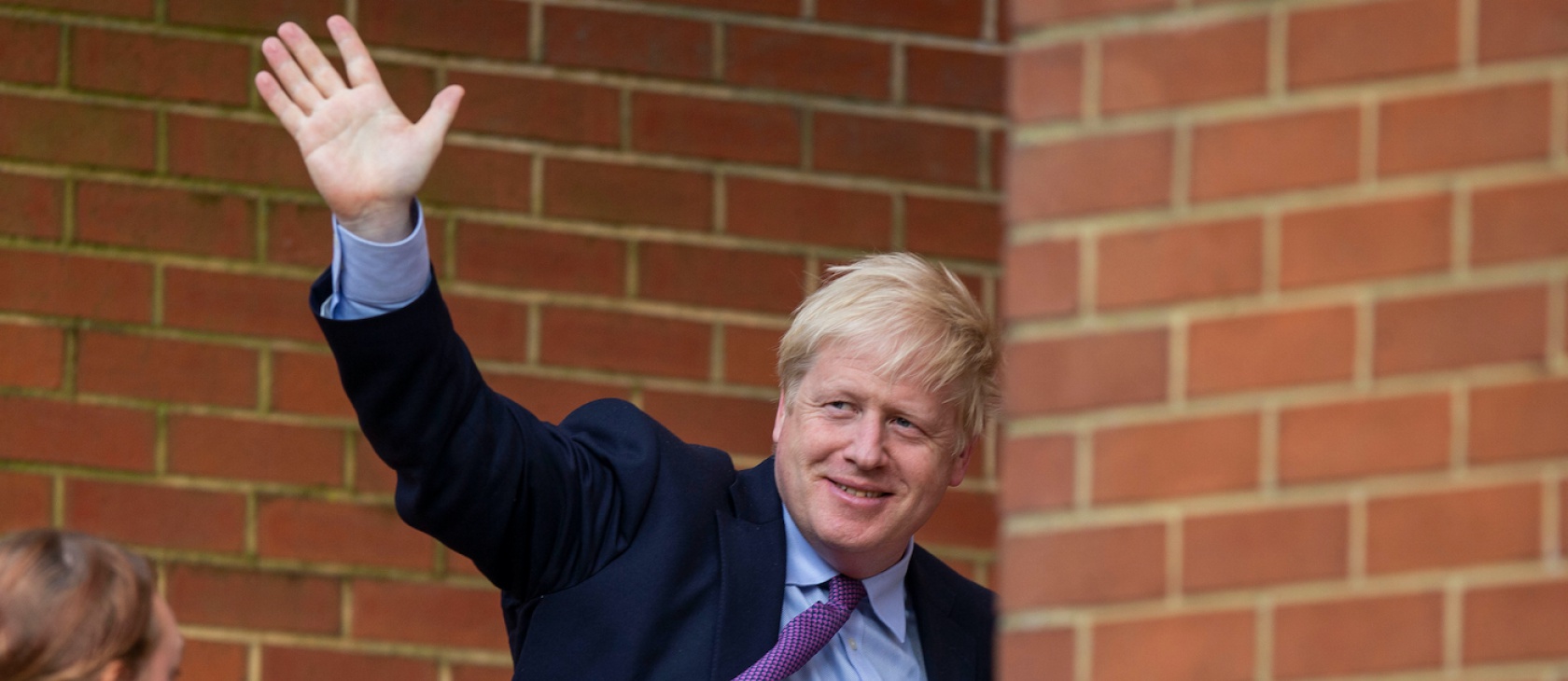It is hard to underestimate how much British politics changed overnight. The results are in, and UK voters have taken back control of their government. The Conservatives under Boris Johnson have gained 364 of the 650 voting districts. (One district remains outstanding, as ballot boxes from remote islands are delayed by the weather.) That gives the Tories an overall majority of 78 or 79 votes.
The result is stunning and presents Prime Minister Johnson with an extraordinary opportunity to advance freedom and free trade. Will he take it? There are also some serious perils.
What happened?
In the 2016 Brexit referendum, large swathes of the midlands and north of England, Labour Party strongholds for generations, voted overwhelmingly to leave the European Union. For the last three years, their party sought to frustrate that democratic decision. When Boris Johnson, a committed Leaver, became leader of the Conservative Party, these voters recognised, that they had an opportunity in this election.
Lesson one of this election is that you ignore the votes of such a large number of your core voters at your peril. Ignored and patronised, these constituents exacted their punishment, delivering the largest majority for the Conservatives since 1987. The Labour vote collapsed in its heartlands. Labour seats, solid for generations, fell to the Conservatives. Some districts elected Conservative members for the first time ever.
These districts exerted a Brexit vote, but also a vote for economic freedom. These ordinary working people don’t want government handouts; they don’t want four-day working weeks, free internet, and so on; and they most assuredly don’t want socialism. Much less did they warm to Jeremy Corbyn’s very real Marxist leanings and the danger a Corbyn government posed to national security. (One of his own chief advisers was caught on tape suggesting that Corbyn was such a danger that the civil service would block his security clearance.)
The other centre-left party, the Liberal Democrats, campaigned for Brexit to be revoked without a further referendum. This went down disastrously, even with moderate Remain voters. Party leader Jo Swinson lost her seat in Parliament.
Opportunity beckons
There are several significant opportunities that now present themselves to Boris Johnson.
The first and most obvious is, since Brexit will now occur, he must secure political freedom. On January 31, 2020, the United Kingdom will leave the institutions of the European Union. This is a major realignment, and we pray that the United Kingdom will, with the U.S., be at the forefront of a reshaped global political stage of nation-states that relate to each other as independent nations rather than simply as members of unelected, unaccountable blocs – or, one might say, empires. This election is a real step forward for political liberty and independence.
The second opportunity is for economic freedom. One of the most important differences between the Brexit Withdrawal Agreement and Political Declaration negotiated by Boris Johnson and that concluded by Theresa May was that May’s aimed at “political and economic alignment” with the objective of striking a free trade agreement. This is more than a nuance. This means that we now have the opportunity to negotiate a true free trade agreement with the European Union, as well as with the U.S. and other countries around the world, while striking down burdensome regulations at home. This is a perfect example of how political and economic liberty work together.
Perils and challenges
The first of these is the corollary of the opportunity for comprehensive free trade agreements with the EU and beyond. We should not underestimate the pressure that will be exerted upon Boris Johnson to agree to arrangements which undermine, rather than enhance, free trade. These would include:
- Regulatory alignment between the UK and the EU, rather than divergence;
- Customs and external tariff arrangements as a condition of market access; and
- Demands for maintaining tax harmonisation.
The siren call of the Remain establishment will continue to attempt to divert the nation away from free markets and free trade in the direction of closer alignment with Brussels. The voices will be seductive – “bring the country together,” “heal the divisions,” “avoid ‘no deal.’” Johnson needs to stand firm on the objective of free trade arrangements shaping the future relationships of the UK and the other sovereign nations of the world.
There is, however, a second peril in this election result, some hints of which we saw in the Conservative Party manifesto and campaign. There is a considerable likelihood that, despite the election of a Conservative government, the size of the state will increase rather than decrease. The proper response to the irresponsible economic policies of the Labour Party is not simply to spend slightly less, but to set out a coherent vision for a free economy. The problem here is that the Conservative Party has become a pragmatic, vote-winning machine and has lacked intellectual vigour for some time – some would say since Margaret Thatcher.
How should we ensure that those Labour heartland voting districts that turned to the Conservatives remain on the centre-right? In the same way that the Labour Party made the enormous error of telling the country that their own supporters were ignorant in casting their Brexit vote, the Conservatives must not insult these voters’ intelligence by assuming they neither understand nor want economic freedom. They most certainly do. Simply to spend more, to increase the role of the state, to use state aid to industry, to regulate rather than set free, will invite disaster at the next election. These very voters understood perfectly that hard work should be rewarded, that fiscal responsibility is an essential prerequisite to run a nation’s finances as they have to oversee a family’s purse, that high taxation acts as a disincentive, and that free stuff exists only in the realms of fantasy. Please, set these people free. Encourage them. Give them opportunity. But please, do not simply try to buy them off.
Conclusions
This election indicates that the Labour Party has essentially become a party of London and university towns. The leadership is entrenched in high socialist voting districts in inner London. One observation made of the lines at the polling booths on the morning of election day was that the Conservative voters would turn out later, as they were at work.
There is now, though, a wonderful opportunity for the Brexit deal to bring about political and economic freedom on an international level. But those same freedoms need to be advocated and unleashed domestically, as well. To fail to do so would be a betrayal of the very voters who have placed their trust in Boris Johnson and the Conservative Party.




